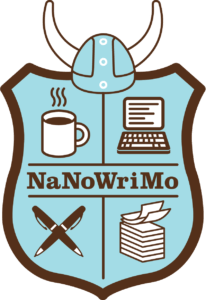Quick links, bringing you great articles on writing from all over the web.
Do you Kindle Scout? I do, as a reader I love it. I love being able to help authors generate buzz for their titles and finding new works to read. If your book is selected by Amazon, you get a contract and I get a free book.
Even if your book doesn’t get published by Amazon, you can still self-publish. The readers who voted for you are notified so they can buy the story. I have, especially if the price is right. Katherine Hayton would know how great Kindle Scout is for authors. Check out her Kindle Scout experienc at Self Publishing Advice Center
~ * ~
Publishing: Kindle Scout Case Study
 By Katherine Hayton on July 14, 2016
By Katherine Hayton on July 14, 2016
New Zealand novelist Katherine Hayton shares her inspiring success story about her fourth novel’s success in a Kindle Scout campaign, leading to a publishing contract with Amazon’s own imprint, Kindle Press.
Back in January, I ran a Kindle Scout campaign for my fourth full-length novel, The Three Deaths of Magdalene Lynton, and was accepted for publication by Kindle Press on the 8th February. After the effort of the campaign, I was excited to be selected, and so far my experience with Kindle Press has shown me they can sell a lot more of my books than I could manage on my own. I’m in my second month (release date 29th March) and I think I’ll have earned out my advance by the end of this month, or early next month, so it seems on track with their expectation of 25k over five years.
Regular Promotions by Kindle
Because they’re an Amazon imprint, they have access to place their published books on the advertising slots available to Amazon, and their aim is to place each book in some kind of promotion every ninety days or so. These range from month long $1.99 promotions in genre selections to individual book titles featured on the $0.99 Kindle Daily Deals. From talking with other authors in Kindle Press, there are mixed results among the books they’ve selected. Some authors have taken a year or more to earn out their advance of $1,500, while others have earned over $12,000 in their first year.
Degree of Author Control
An author with Kindle Press retains a lot more control than they would with a larger press, so I had final say over all edits, title, cover, and book description. Anything else (eg categories) can be suggested but not necessarily taken on board. The pricing is determined by word count and seems unshakable apart from a book’s inclusion in discounted pricing promotions. If there’s anything about the book that Kindle Press thinks will harm the chances of promotion slots, they’ll discuss it directly with the author so they have the chance to either change it or stick to their own vision.
~ * ~
If you liked this article, please share. If you have suggestions for further articles, articles you would like to submit, or just general comments, please contact me at paula@publetariat.com or leave a message below.
Save
Save


 Lots of writers struggle with the opening to their books, no matter what genre. I’m working with one client in my retainer coaching program who is writing a very large story–it spans thirty years or more. It’s a memoir, and a lot has happened to her in her long life, so choosing the starting moment is very challenging for her.
Lots of writers struggle with the opening to their books, no matter what genre. I’m working with one client in my retainer coaching program who is writing a very large story–it spans thirty years or more. It’s a memoir, and a lot has happened to her in her long life, so choosing the starting moment is very challenging for her. There are many places where readers can find and download e-books. There are a number of online retailers such as Amazon, Barnes and Noble and Kobo that sell them directly. Your local library likely has a robust digital collection or sometimes piracy is just a click away. Good e-Reader has been running a poll for the past three weeks where we asked the question “where do you get your e-books from?” Over 827 people responded and we now have some fairly comprehensive data.
There are many places where readers can find and download e-books. There are a number of online retailers such as Amazon, Barnes and Noble and Kobo that sell them directly. Your local library likely has a robust digital collection or sometimes piracy is just a click away. Good e-Reader has been running a poll for the past three weeks where we asked the question “where do you get your e-books from?” Over 827 people responded and we now have some fairly comprehensive data. By Katherine Hayton on July 14, 2016
By Katherine Hayton on July 14, 2016

 By
By 

 Expert publishing blog opinions are solely those of the blogger and not necessarily endorsed by DBW.
Expert publishing blog opinions are solely those of the blogger and not necessarily endorsed by DBW. Here’s a scary thought. When it comes to writing, you may have done everything you’ve been taught to do with utter perfection, and precisely because of that, it turns out you’ve written something that is flat, boring and uninvolving. This all too common phenomenon is something I’m going to be deconstructing, myth by myth, for the next several months in my columns here. I’m beginning this month with the overarching granddaddy of them all – the myth that derails otherwise riveting stories before they’re even created.
Here’s a scary thought. When it comes to writing, you may have done everything you’ve been taught to do with utter perfection, and precisely because of that, it turns out you’ve written something that is flat, boring and uninvolving. This all too common phenomenon is something I’m going to be deconstructing, myth by myth, for the next several months in my columns here. I’m beginning this month with the overarching granddaddy of them all – the myth that derails otherwise riveting stories before they’re even created. Our guest blogger on common obstacles to writing your book is my friend-in-real-life Kate Hanley, a New York Times-bestselling ghostwriter who helps authors get their message out and make a difference in the world. Her self-paced online class, “
Our guest blogger on common obstacles to writing your book is my friend-in-real-life Kate Hanley, a New York Times-bestselling ghostwriter who helps authors get their message out and make a difference in the world. Her self-paced online class, “ Sometimes the simplest thing you can do to give your book a boost is play around with the pricing.
Sometimes the simplest thing you can do to give your book a boost is play around with the pricing.
 A story starts on page one, right? This post by author Veronica Scott will make you think about where your story really starts…
A story starts on page one, right? This post by author Veronica Scott will make you think about where your story really starts…